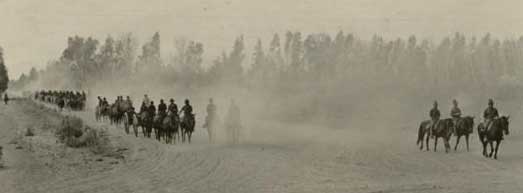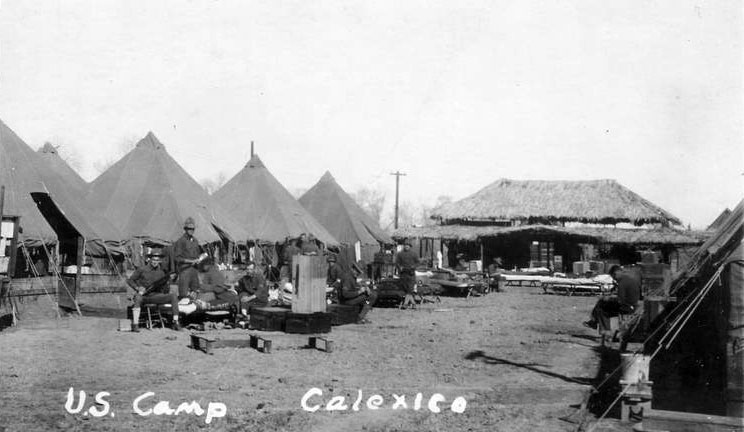
In April, 1914, the people on the American side of the border between California and Lower California flooded the Governor's office with alarming telegrams about Mexicans coming across the border and committing depredations and making raids on the California side of the border. There were several garrisons and border towns just over the Mexican side, with some of them containing Mexican troops. It looked as though we were going to have war with Mexico and the Americans were greatly excited and were crying for help.
Some companies of Reguler Army Coast Artillery scattered along the border were entirely insufficient. to covor the ground, Rich American settlements in Imperial Valley were very much alarmed about the reported plan to cut their canal, which ran for a way through Mexican territory, and which supplied the water for Imperial Valley.
charge of the line, the Governor concluded to provide some protection for the American inhabitants. The brigade of Regular troops in California had been ordered to El Paso, Texas, thus depleting more than ever the number of troops in service on the California border. The Los Angeles battalion (1st Battalion) of the 7th Infantry Regiment was ordered to El Centro, under command ot Colonel William G. Schreiber, 7th Infantry Regiment, National Guard of California (NGC)., and did patrol and guard work for eighteen days.
